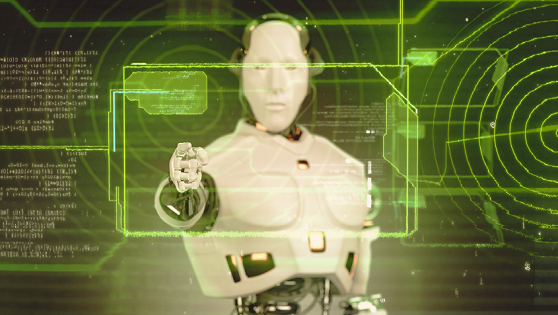
Artificial intelligence (AI) is changing the face of consumer interaction. From chatbots to personalization, AI is redefining how businesses talk to their customers. This will not only improve the user experience but drive growth and efficiency in ways we’ve never seen before. In this post, we’ll explore how AI is changing the next generation of consumer interaction and what the future holds for this relationship.
The Evolution of AI in Consumer Interaction
AI’s journey in consumer interaction started with basic automated systems like IVR (interactive voice response) in call centers. Over the years, machine learning and natural language processing (NLP) have enabled AI to understand and respond to human queries with more and more sophistication. Today, AI-powered tools can do everything from answering customer questions to predicting buying behavior.
Key Areas Where AI is Revolutionizing Consumer Interaction
Customer Service and Support:
- Chatbots: AI chatbots can now handle complex customer queries, provide instant answers, and work 24/7. These bots not only increase customer satisfaction but reduce the workload on human agents.
- Virtual Assistants: AI virtual assistants like Siri, Alexa, and Google Assistant are becoming part of our daily lives, helping us with everything from setting reminders to controlling smart home devices.
Personalisation:
- Recommendation Engines: E-commerce giants like Amazon and Netflix use AI algorithms to understand user behavior and preferences and offer personalized recommendations that drive engagement and sales.
- Dynamic Content: AI allows businesses to personalize content based on individual user data so marketing messages hit their target audience more.
Predictive Analytics:
- Consumer Insights: AI tools can analyze massive amounts of data to predict consumer trends and behavior. This means businesses can make data-driven decisions and anticipate customer needs.
- Inventory Management: Retailers use AI to forecast demand, optimize inventory levels, and reduce waste, resulting in cost savings and customer satisfaction.
Better Shopping Experiences:
- Visual Search: Platforms like Pinterest and Google offer AI-powered visual search so users can search for products using images rather than text.
- Augmented Reality (AR): AI-powered AR applications offer virtual try-ons for clothing, makeup, and furniture, bridging the gap between online and offline shopping.
The Benefits of AI in Consumer Interaction
AI in consumer interaction brings many benefits:
- Efficiency: AI can handle multiple inquiries at once, so fast and efficient customer service.
- Accuracy: AI reduces human error and provides more accurate information and solutions to customer queries.
- Scalability: Businesses can scale without a proportionate increase in staffing costs as AI can handle repetitive tasks.
- Insight: AI-driven analytics provide deep insights into consumer behavior, helping businesses tailor their strategies to meet evolving demands.
Challenges
Of course there are some challenges:
- Privacy: AI requires access to loads of customer data, so there’s the issue of privacy and data security. Businesses must comply with GDPR and be transparent with their data practices.
- Bias: AI can perpetuate biases in the data it’s trained on. Companies must actively work to find and fix those biases to treat all customers fairly.
- Human Touch: While AI can do many things, don’t forget the human element in customer service. Businesses must find the balance between AI efficiency and human agent touch.
The Future of AI in Next Generation of Consumer Interaction
Going forward, AI will change consumer interaction in many cool ways:
- Voice Commerce: With the growth of voice-activated devices, voice commerce will become a major channel for consumer transactions. AI will help refine voice recognition and natural language processing.
- Hyper-Personalization: As AI gets smarter, it will enable hyperpersonalization, delivering experiences based on real-time data and contextual insights.
- Emotional AI: Advances in emotion recognition will allow AI to understand and respond to human emotions, creating more empathetic and effective interactions.
- AI-Driven Automation: AI will automate routine tasks so human agents can focus on complex and valuable activities; overall service quality will improve.
Conclusion
AI in next generation of consumer interaction is not a trend; it’s a transformation of how businesses interact with their customers. As AI evolves, it will open up new possibilities for personal, efficient, and engaging customer experiences. Businesses that adopt AI will be ahead of the curve in this new world of consumer interaction, delivering more value and happiness to their customers.


